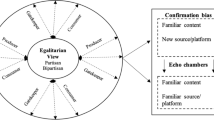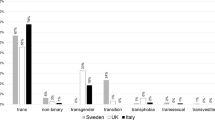Abstract
Despite many studies having investigated journalism and media transformation in China in recent years, how Chinese media communicate international issues to its public, and particularly its relations with government policies, remains an underexplored area. Although the extent and quality of the relationship between the European Union (EU) and China has developed fast over the past 20 years, the crises, such as the financial crisis, Eurozone debt crisis, refugee crisis, Brexit, and COVID-19 that the EU has faced have had a negative impact on Chinese perceptions of the EU. Adopting framing theory, this paper focuses on the role of, and the challenges to, Chinese media organizations in communicating the Eurozone crisis and the European refugee crisis to the Chinese public. The study uses content analysis and semi-structured interviews to explore how Chinese journalists and editors balanced journalistic professionalism and the national interest in framing the EU crises. This balance aimed to reduce to a minimum the negative impact of the crises on perceptions, thereby securing domestic support and the government’s closer ties with the EU.



Similar content being viewed by others
References
Arrese, A., and A. Vara-Miguel. 2016. A comparative study of metaphors in press reporting of the Eurozone crisis. Discourse & Society 27(2): 133–155.
Bandurski, D. & Hala, M. 2010. Investigative Journalism in China: Eight cases in Chinese Watchdog Journalism (eds.), Hong Kong: Hong Kong University Press.
Bickerton, C.J., D. Hodson, and U. Puetter. 2015. The new intergovernmentalism: European integration in the post-maastricht Era. Journal of Common Market Studies 53(4): 703–722.
Bruggemann, M. 2014. Between frame setting and frame sending: How journalists contribute to news frames. Communication Theory 24(1): 61–82.
CCTV1. 2011a. Finance Ministers of member states meet to discuss the debt crisis, but fail to find a solution, CCTV1, 18th January.
CCTV1. 2011b. EU financial ministers agreed on a permanent bailout mechanism, CCTV1, 22nd March.
Chan, G. 1999. Chinese perspectives on international relations: A framework for analysis. New York: St. Martin’s Press.
Chang, T.-K., J. Wang, and Y. Chen. 2002. China’s window on the world: TV news, social knowledge and international spectacles. Cresskill: Hampton Press.
China. 2003. China’s Policy Paper on the EU, 13 October. Beijing.
China. 2014. China’s Policy Paper on the EU, 2 April. Beijing.
China. 2018. China's Policy Paper on the EU, 18 December. Beijing.
China Daily. 2011. ‘China’s message to EU,’ China Daily, 27 June, p. 8.
Chryssogelos, A. 2016. The EU’s crisis of governance and European foreign policy. London: Chatham House.
Cohen, B. C. 1963. The Press and Foreign Policy. Princeton: Princeton University Press.
Dai, B., and S. Zhang. 2007. EU Perceptions in China. In The EU through the eyes of Asia: Media, public and elite perceptions in China, Japan, Korea, Singapore and Thailand, ed. M. Holland, P. Ryan, A.Z. Nowak, and N. Chaban, 43–67. Singapore and Warsaw: University of Warsaw Press.
de Vreese, C.H. 2002. Framing Europe: Television news and European integration. Amsterdam: Aksant Academic Publishers.
de Vreese, C.H. 2012. New avenues for framing research. American Behavioral Scientist 56(3): 365–375.
De Vries, C. E., and Edwards, E., E. 2009. Taking Europe to Its Extremes: Extremist Parties and Public Euroscepticism. Party Politics 15(1): 5–28.
Drewski, D. 2015. Has There Been a European Public Discourse on the Eurozone crisis? A systematic content analysis of newspaper editorials on the Eurozone crisis in Germany and Spain, BSSE, Working Paper, No. 33. Available at http://nbn-resolving.de/urn:nbn:de:0168-ssoar-427111
Ecker-Ehrhardt, M. 2012. “But the UN Said So...”: International Organizations as Discursive Authorities. GlobalSociety, 26(4): 1–23.
Entman, R.M. 1993. Framing: Toward clarification of a fractured paradigm. Journal of Communication 43(4): 51–58.
Entman, R.M. 2003. Cascading activation: Contesting the white house’s frame after 9/11. Political Communication 20(4): 415–432.
Entman, R.M. 2004. Projections of power: Framing news, public opinion, and U.S. foreign policy. London: University of Chicago Press.
Fabbrini, S. 2013. Intergovernmentalism and its Limits: Assessing the European Union’s Answer to the Euro Crisis. Comparative Political Studies 46(9): 1003–1029.
Fu, B. 2011. Europe is hard to say goodbye to the debt crisis, International Finance News, 24th May, p. 1.
Gagliardone, I., and N. Pal. 2017. Freer but not free enough? Chinese Journalists Finding Their Feet in Africa. Journalism 18(8): 1049–1063.
Georgiou, M., & R. Zaborowski, 2017. Media coverage of the "refugee crisis": A cross-European perspective. Strasburg: Council of Europe.
Goffman, E. 1974. Frame analysis. New York: Harper & Row.
Guan, T. 2018. Framing the boundary of Sino-Japanese Conflicts in China’s Communication Sphere: A content analysis of the news coverage of Japan and Sino-Japanese Controversies by the People’s Daily between 2001 and 2015. Journal of Chinese Political Science 23(4): 603–618.
Harui, R. 2011. Euro slides as debt crisis worsens, China Daily, 24th May, p. 14.
He, Z. 2000. Chinese Communist Party press in a Tug-of-War: A political-economy analysis of the Shenzhen Special Zone Daily. In Power, Money, and Media: Communication patterns and bureaucratic control in cultural China, ed. C.-C. Lee, 112–151. Evanston: Northwestern University Press.
Hoge, J.F. 1994. Media pervasiveness. Foreign Affairs 73(4): 136–144.
Holland, M., Ryan, P., Nowak, A. Z., & Chaban, N. (Eds.) 2007. The EU Through the Eyes of Asia: Media, Public and Elite Perceptions in China, Japan, Korea, Singapore and Thailand. Warsaw: Zaklad Grfiezny Uniwersytet.
Hu, Y. 2010. Management of China’s foreign exchange reserve: A case study on the state administration of foreign exchange (SAFE), Economic Paper 421. Brussels: European Commission.
IFN. 2011. Eurozone economic growth is in line with expectations”, International Finance News, 9th June, p. 1.
Joris, W., L. d’Haenens, and B. Van Gorp. 2014. The Eurozone crisis in metaphors and frames: Focus on the press in the Low Countries. European Journal of Communication 29(5): 608–617.
Kahneman, D., and A. Tversky. 1984. Choice, values, and frames. American Psychologist 39: 341–350.
Li, Z. 2012. What China wants in 2012, Project Syndicate. 12 January 2012, available www.project-syndicate.org/commentary/what-china-wants-in-2012, Accessed 22 April 2016.
Lin, F. 2010. A survey report on Chinese journalists in China. China Quarterly 202: 421–434.
Liu, G., and H. Yang, 1998. The EU Celebrates the Establishment of the European Central Bank [Oumeng qingzhu ouyanghang zhengshi yunzuo], People’s Daily, 2 July, p. 6.
Michael, H. 2018. “Why We Fled from Grosny? Nobody Has Asked Us This Question Yet”: German Media and Immigration. Literary Journalism Studies 10(1): 70–91.
Pan, Z., and Y. Lu. 2003. Localizing professionalism: Discursive practices in China’s media reforms. In Chinese Media, Global Contexts, ed. C.-C. Lee, 215–236. London: Routledge Curzon.
Robinsons, P. 2002. The CNN effect: The myth of news, foreign policy and intervention. London: Routledge.
Scheufele, D.A. 1999. Framing as a theory of media effects. Journal of Communication 49(1): 103–122.
Shoemaker, P.J., and S.D. Reese. 1996. Mediating the message: Theories of influence on mass media content. Longman: Longman.
Shoemaker, P.J., and S.D. Reese. 2013. Mediating the message in the 21st century: A media sociology perspective. New York: Routledge.
Steenbergen, M. R., De Vries, C. E., and Edwards, E. 2007. Who’s Cueing Whom? Mass-Elite Linkages and the Future of European Integration. European Union Politics 8(1): 13–35.
Sun, W. 2015. Slow boat from China: Public discourses behind the “going global” media policy. International Journal of Cultural Policy 21(4): 400–418.
Tuchman, G. 1978. Making news: A study in the construction of reality. New York: The Free Press.
Wang, L. 2011. EU decides on a permanent bailout mechanism, International Finance News, 16th February, p. 4.
Williams, K. 2003. Understanding media theory. London: Arnold.
Wu, C., G. Ding, & P. Ji, 2011. Greek government passed confidence vote, good news for Asian financial market, People’s Daily, 23 June, p. 22.
Wu, L. 2011a. EU issues bonds to facilitate the financial stability, People’s Daily, 27th January, p. 22.
Wu, L. 2011b. EU raises expectations for Eurozone economic growth, People’s Daily, 2nd March, p. 22.
Xu, Y., and J. Jin. 2017. The hierarchy of influences on professional role perceptions among Chinese online journalists: A multilevel analysis. Digital Journalism 5(2): 194–212.
Yao, Y. 2005. Editor for Foreign News: Fifty Years’ Experiences and Thoughts [Guojixinwen bianji: wushinian tiyan he qianjian], pp.1–12, In: Hongchao Liu, (Ed.), How to be an Editor for International News [Zenyang zuo guojixinwen bianji], Beijing: Communication University of China Press, 2005.
Zhang, L. 2011. News Media and EU-China Relations. New York: Palgrave Macmillan.
Zhang, L., and Y. Yu. 2013. Chinese views of the EU: Overview of survey findings. In China and the European Union, ed. L. Dong, et al., 11–36. London: Routledge.
Zhang, L. 2016. “Reflexive expectations” in EU-China Relations: A media analysis approach. JCMS-Journal of Common Market Studies 54(2): 463–479.
Zhang, M. 1990. Conference on European situation held in Beijing, People's Daily: 30th November, p. 7.
Zhang, S.I. 2013. The new breed of Chinese war correspondents: Their motivations and roles, and the impact of digital technology. Media, War & Conflict 6(3): 311–325.
Zheng, Y., & B. Zhang, 1999. Euro Challenges US Dollar [Ouyuan xiang meiyuan jiaoban] People’s Daily, 5 January, Editorial, p. 7.
Funding
This research was supported by Tsinghua Lab Research Program on Computational Communication and Intelligent Media (2023TSJCLAB001).
Author information
Authors and Affiliations
Corresponding author
Additional information
Publisher's Note
Springer Nature remains neutral with regard to jurisdictional claims in published maps and institutional affiliations.
Rights and permissions
Springer Nature or its licensor (e.g. a society or other partner) holds exclusive rights to this article under a publishing agreement with the author(s) or other rightsholder(s); author self-archiving of the accepted manuscript version of this article is solely governed by the terms of such publishing agreement and applicable law.
About this article
Cite this article
Zhang, L. Issue framing, news value and national interest: communicating EU crises in China. Comp Eur Polit 21, 649–667 (2023). https://doi.org/10.1057/s41295-023-00357-1
Accepted:
Published:
Issue Date:
DOI: https://doi.org/10.1057/s41295-023-00357-1




